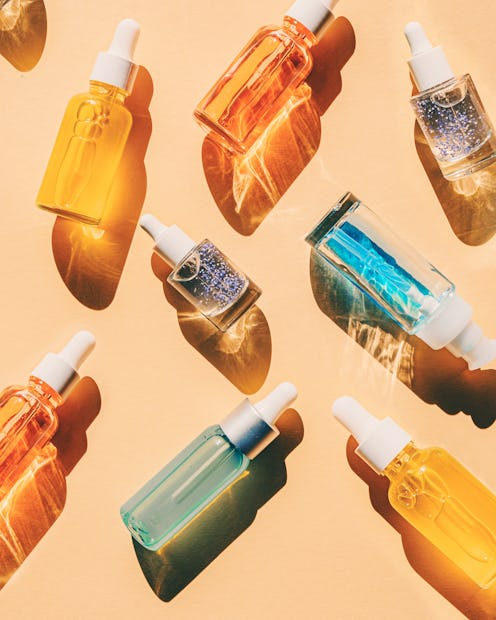Style
Experts Explain The Difference Between Essential Oils & Extracts In Skin Care

I am a huge fan of essential oils. But there have been a number of times when I've read an ingredients list on a skin-care product and seen the name of something I expected to be an oil that was actually an extract. So it got me wondering: What's the difference between extracts and essential oils anyway? Grapefruit essential oil and grapefruit extract both smell delicious, but do they play the same role in skin care? To find out, I emailed with a couple of experts.
Jordana Mattioli, NYC-based esthetician, and Emily Cunningham, co-founder of True Moringa, both explained to me how extracts and essential oils are made, and what types of benefits you can expect from these similar, yet not-the-same ingredients. According to Mattioli, "Essential oils are the concentrated, volatile, aromatic compounds of a plant," and they are usually extracted through steam distillation. Extracts, on the other hand, tend to be a type of infusion or tincture. Mattioli likens the process to making tea— the plant, flower, or fruit steeps in a solution (typically water, oil, or alcohol) to extract the desired quality. Because of these different methods of production, "Essential oils will be pure, whereas an extract is a diluted version," says Mattioli.
And because of these different concentrations, where you might find essential oils and extracts in your skin care and the effects they have will be different as well. "Essential oils need to have a specific dilution," says Mattioli, which means you'll likely "find extracts higher up on the ingredient list in most beauty products." And while Cunningham says both essential oils and extracts have therapeutic qualities, Mattioli adds that essential oils will have more effective results than extracts, especially when it comes to the source material's antibacterial, anti-fungal, and antiviral properties. In other words, while grapefruit essential oil and extract can both give similar aromatherapeutic results, in skin care, the essential oil will deliver more benefits than the extract form.
It's also worth noting that "Not every plant can produce useable essential oils, but many of them can be used in extracts," says Mattioli. So depending on what types of scents or advantages you're looking for in your skin care, remember that if a product touts the inclusion of something like lavender, to check the ingredients label to see what form the lavender is in.
But even though Mattioli and Cunningham agree on the distinctions between essential oils and extracts, Cunningham still warns that definitions in the beauty industry can be fuzzy and unregulated (like what qualifies your beauty products to be green). So when looking for certain types of ingredients or skin-care products including essential oils and extracts, she recommends finding brands you trust. That way, you'll truly know what types of benefits to expect.
Images: Getty Images (2)